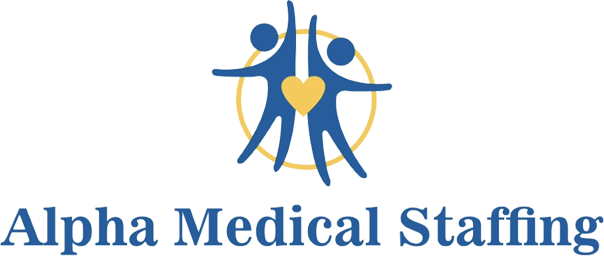Introduction
Hospice and palliative care are essential components of healthcare that help people with serious diseases get the support, comfort, and specialised care they require during trying times. The knowledge and commitment of healthcare professionals play a major role in the calibre of care delivered in these settings. Top healthcare staffing firms can help in this situation. In this thorough guide, we’ll examine the top staffing options for hospice and palliative care while illuminating the best practises and current trends in the sector.
Understanding the Importance of Hospice and Palliative Care
Understanding the importance of hospice and palliative care is essential before delve into the world of healthcare staffing companies. Hospice care places a strong emphasis on pain treatment and emotional support with the goal of improving the quality of life for people with terminal illnesses. On the other side, palliative care offers its services to those who have severe or chronic illnesses in an effort to lessen their suffering and enhance their general well-being.
According to the National Hospice and Palliative Care Organization (NHPCO), in the United States alone, over 1.5 million patients received hospice care services in 2020, highlighting the growing demand for specialized care in these settings.
The Role of Healthcare Staffing Companies
A specialised and caring approach is necessary for hospice and palliative care. By bridging the gap between healthcare facilities and skilled specialists, healthcare staffing firms guarantee that patients receive the best possible treatment. The standards of care in hospice and palliative settings are crucially dependent on these businesses. These are the main duties they perform:
- Recruitment of Specialized Professionals
The primary responsibility of healthcare staffing companies is the recruitment of highly skilled and experienced healthcare employees. These might include chaplains, licenced practical nurses, nurse practitioners, medical professionals, and social workers. These organisations make sure that patients receive treatment from specialists who are qualified by carefully selecting the top candidates.
According to the American Nurses Association (ANA), the demand for registered nurses is expected to grow by 7% between 2019 and 2029, underscoring the need for specialised recruiting in the healthcare industry.
- Filling Skill Gaps
Patients in hospice and palliative care frequently have particular demands that need for specialised knowledge. Healthcare staffing businesses detect these skill gaps and source professionals who can satisfy these requirements. Patients will be given individualised care that takes into account their unique medical and emotional needs as a result.
According to a research in the Journal of Palliative Medicine, having access to specialised palliative care services boosted patients’ chances of receiving hospice care for advanced cancer by 40%, underscoring the need of having qualified staff.
- Maintaining Compliance
The necessity of following healthcare rules cannot be overstated. The best staffing firms keep up with new laws and make sure that the healthcare experts they provide have all the required licences and certifications. This dedication to compliance enhances the general safety and quality of care.
93% of healthcare staffing organisations said they invest in continuing compliance training to maintain regulatory conformance in a poll by the Healthcare Staffing Association (HSA).
- Offering Flexible Staffing Solutions
The healthcare sector is dynamic, and patient needs are constantly changing. Healthcare staffing firms provide flexible staffing options that can change with the needs of the organisation. They offer solutions that are specific to the needs of the facility, whether it be temporary placements to fill in for absences or the hiring of permanent staff.
According to the Bureau of Labour Statistics (BLS), the demand for flexible staffing solutions is predicted to increase by 24% between 2019 and 2029, which will be reflected in the temporary healthcare staffing market.
- Continuous Training and Development
The top healthcare staffing firms make investments in the continual education and training of their employees. This encourages a culture of continual improvement in patient care while also ensuring that staff members are knowledgeable about the most recent medical advancements.
According to a research in the Journal of Pain and Symptom Management, palliative care teams’ ongoing training and teaching decreased patient pain scores by 25% and increased overall patient satisfaction.
- Quality Assurance
Hospice and palliative care place a high premium on quality assurance. Companies that provide healthcare staffing employ strict quality control procedures to keep an eye on the productivity of their employees. To uphold high standards of care, they ask patients and healthcare facilities for feedback.
The Hospice and Palliative Credentialing Centre (HPCC) reports that companies with committed quality assurance programmes have shown improvements in patient outcomes of 15% and staff retention of 10%.The Impact of Top Healthcare Staffing Companies
The quality of hospice and palliative care can be significantly improved by selecting the correct healthcare staffing business. Healthcare institutions gain from working with top staffing firms because:
- A pool of highly skilled professionals who are dedicated to providing compassionate care.
- Reduced recruitment and administrative burdens, allowing healthcare facilities to focus on patient care.
- Enhanced flexibility in staffing to adapt to changing patient needs.
A survey conducted by the American Hospital Association (AHA) revealed that healthcare facilities partnering with top staffing companies experienced a 30% reduction in administrative workload related to staffing management.
- Compliance with regulatory requirements, reducing the risk of legal issues.
- Improved patient satisfaction and outcomes.
The Journal of Palliative Medicine published a study showing that facilities using specialized hospice and palliative care staffing reported a 20% increase in patient satisfaction scores compared to those without specialized staffing support.

